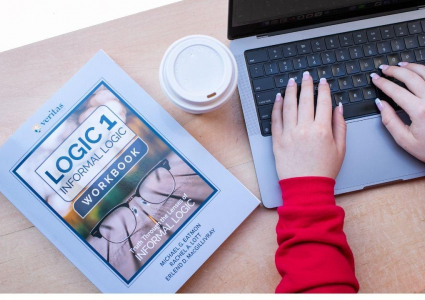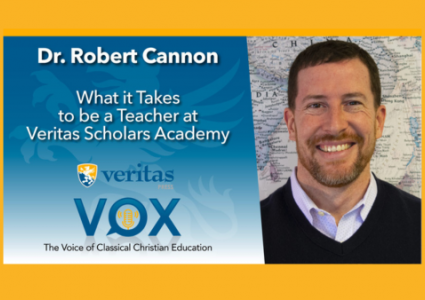The Veritas Approach to Memory Period
If you have heard anything about the resurgence of classical education, you’ve likely heard of Dorothy Sayers. In 1947 she delivered an address at Oxford University called “The Lost Tools of Learning.” She lamented the state of education for children. She went on to describe the trivium and the opportunity following it provided in modern education. The trivium is defined with three stages: grammar, dialectic, and rhetoric. In the grammar stage—akin to the grammar school years—she says this:
… anything and everything which can be usefully committed to memory should be memorized at this period, whether it is immediately intelligible or not. The modern tendency is to try and force rational explanations on a child's mind at too early an age. Intelligent questions, spontaneously asked, should, of course, receive an immediate and rational answer; but it is a great mistake to suppose that a child cannot readily enjoy and remember things that are beyond his power to analyze—particularly if those things have a strong imaginative appeal (as, for example, "Kubla Kahn"), an attractive jingle (like some of the memory-rhymes for Latin genders), or an abundance of rich, resounding polysyllables (like the Quicunque vult).
She was so right. As adults, we tend to think of teaching young children as if they are little adults who learn like adults. They’re not. Think back to your childhood. How many nursery rhymes do you remember? Watch young children sing and chant the same thing over and over again. They love to learn in ways we no longer do.
The beauty is you still remember those songs as an adult. There is a reason. That is when the brain is set to have lots of information put in it. It works a bit like filling a hard drive for later use.
For years we’ve known this is an opportunity to be captured. There are lots of things we want children to memorize in those grammar school years. We also realized how hard it is to recite all the chants and songs throughout the school day for each subject.
Years ago on a school visit, we had the opportunity to observe students reciting seemingly endless amounts of material that they had memorized. We were struck with the fact that this is a crucial, if not the key, ingredient to the grammar stage of classical Christian education. We learned that these students simply spent a small amount of time each day going through a long list of things to commit to memory. It is amazing what can be memorized dedicating a few minutes every day. That’s how Memory Period was born.
Students will learn a timeline of history and the Bible, geography facts, Latin declensions, math facts, grammar jingles, and more.
Taking it one step further by marching, shouting, and generally letting kids be kids has made the learning even more fun. Children love it.
Learn more about the course options for Memory Period!







